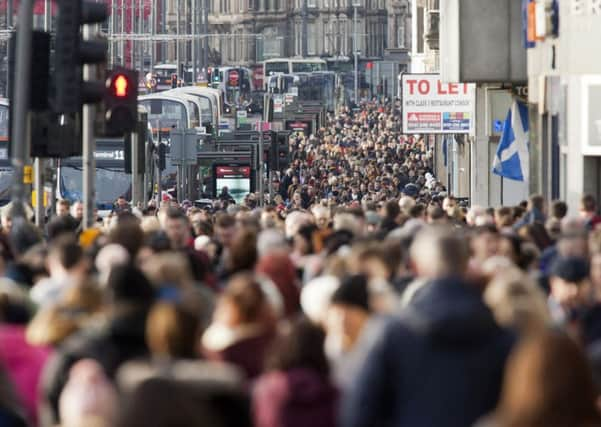Despite Brexit and pockets of squalor, Britain is still working – John McLellan


For all the Brexit chaos, the paralysis in Westminster, the talk of economic catastrophe and, of course, the impending end of civilisation as we know it, more British people than ever before are somehow managing to brave another day to go out to work.
The numbers don’t lie and despite the best efforts of doomsayers to talk down the economy, the figures published by the Office of National Statistics this week paint a heartening picture:
Advertisement
Hide AdAdvertisement
Hide Ad– The highest number of people in employment since records began in 1971 at 76.1 per cent (75.3 in Scotland).
– At 3.9 per cent (3.4 in Scotland) unemployment has not been lower since January 1995.
– Economic inactivity is also the lowest on record at 20.7 per cent (22 per cent in Scotland) and is down 0.5 per cent on last year
Critics will claim it’s all cheap labour and the supposedly hated zero-hours contracts, but total average earnings are up 3.4 per cent on last year to £530 a week, a healthy 1.5 per cent real-terms increase after adjustment for inflation, and a 0.7 per cent increase in disposable income.
Where the real transformation has come since 1971 is the gender profile of the workforce, with 71.2 per cent of working age women in jobs today, compared to 52.8 per cent in 1971. The ONS singles out the increase in the female state pension age as a major cause, but the right to be economically independent was not necessarily a given in 1971 and there were fewer single-parent families.
By contrast, 92 per cent of men worked in 1971 compared to 80.5 per cent today, which highlights the continued problem of male unemployment in some post-industrial communities; eight per cent of men in Kirkcaldy claim unemployment benefits, the highest in Scotland, followed by Glasgow Maryhill on 7.1 per cent, for example. Despite this, the evidence is that even with relatively low growth the British economy as a whole continues to create thousands of opportunities, with 854,000 vacancies in the three months to the end of February, an annual increase of 39,000.
Again, critics might say, isn’t this a perfect illustration of the negative impact of Brexit because the numbers of EU citizens leaving or not coming at all leaves vital posts unfilled? Migration from the EU is indeed at its lowest level since 2009, but according to ONS data published last month net migration in the year to September 2018 was 283,000 because non-EU migration is at its highest level since 2004.
All the talk about Britain no longer being a welcoming place is therefore not supported by the statistics and while up-to-date estimates are not yet available, a similar story was being told here in Scotland where in the year to mid-2017, net international immigration was 13,400, with 4500 coming to Edinburgh alone.
Advertisement
Hide AdAdvertisement
Hide AdPerception always being reality, the truth is that no matter how positive the statistics, people aren’t feeling it. For the first time, the ONS is now measuring personal wellbeing and last month its wellbeing charts found low levels of happiness and satisfaction and high levels of anxiety.
“Despite high levels of employment, rising incomes and spending across UK households, people are not reporting increases in their wellbeing,” said Head of Inequalities (not a title you’d choose) Glenn Everett.
There can be no minimising the need to deal with the problems the most vulnerable face – you don’t have to go far in Edinburgh to find people living in what can only be described as squalor – but compared to Kirkcaldy the highest male unemployment claimant rate in Edinburgh is 2.7 in Eastern, while the total in Southern is the lowest in Scotland at just 0.8.
There will always be people who need help, but despite all the turmoil Britain is still working.